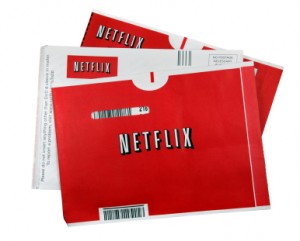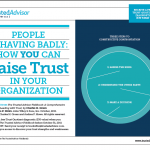In Netflix We Trust
 This post is not about piling on Netflix (or its new spin off, Quikster). You can read elsewhere about the movie rental company’s bad decisions, their business prospects, or—more entertainingly—their Twitter handle being owned by a ‘Pot-smoking Elmo.” Ditto for parsing Netflix CEO Reed Hastings’ apology.
This post is not about piling on Netflix (or its new spin off, Quikster). You can read elsewhere about the movie rental company’s bad decisions, their business prospects, or—more entertainingly—their Twitter handle being owned by a ‘Pot-smoking Elmo.” Ditto for parsing Netflix CEO Reed Hastings’ apology.
What I want to talk about is: How Fast Is Your Mirror?
Mirror, Mirror on the Wall
Dorian Gray had a picture that told him the truth about his age. Snow White’s Queen possessed a magic mirror that told the truth about her beauty. But what kind of mirror do we have for a bonehead moment?
Over time, some of us come to recognize some of our errors. Sometimes. (Lifelong denial is not uncommon.) But if you’re a business leader, the pressure is enormous to get it right, right away.
The pressure is worse today. When Johnson & Johnson became the poster child for responsible behavior during the Tylenol scare in 1982, we forget that several days passed before the national recall. Yet Netflix felt it had to apologize overnight for its moves.
What kind of mirror can tell us overnight that a way of doing business, a major decision, an unchallenged assumption was dead, flat wrong? And what sort of mirror is good enough to convince us overnight?
Who can reverse their self-consciousness overnight after being hit in the face with a bucket of icy reality-water?
How fast is your mirror?
Does it Take Time? Or Objectivity?
There’s a saying that ‘time takes time.’ Meaning, the passage of time is required for some shifts to take place, and there’s no hurrying it.
Remember when Michael Richards (Kramer of Seinfeld fame) went racially ballistic in a totally offensive comedy routine? That was November 20, 2006. Later that night he went back on stage to apologize, and two days later was doing a hastily-arranged public apology on the David Letterman show—which, as I recall, was in some ways more acutely embarrassing than the incident itself.
He could have benefited from more time. Watching sausage-making destroys the appetite for sausage.
On the other hand, if the end-game is revised perspective, maybe there’s a better way than to watch paint dry and the hands on the clock turn. Maybe your truth-mirror is another person—someone you can trust.
I don’t know Reed Hastings, and I don’t know if anyone on his management team could have told him his decision was flawed—more interestingly, that his apology was half-baked. Remember, Netflix stock may have dropped from 300 a few months ago, but Hastings had brought it there from 20 less than 10 years ago. Whoever wouldst play Hastings’ mirror role had better have a lot of gravitas.
Who’s Your Mirror?
If the proverbial hits the fan, whom do you call? If the world suddenly is telling you you’re a bozo and that just makes you’re even more convinced you’re right–to whom would you listen to tell you otherwise? The wrong answer would be “no one.”
Who’s your mirror?


Trackbacks & Pingbacks
[…] can read elsewhere about the movie rental companys bad decisions, their business prospects …http://trustedadvisor.com/trus ..Why Netflix Raised Its PricesSad, sad, sad. The worlds best deal in TV and movies has just gone […]
Leave a Reply
Want to join the discussion?Feel free to contribute!